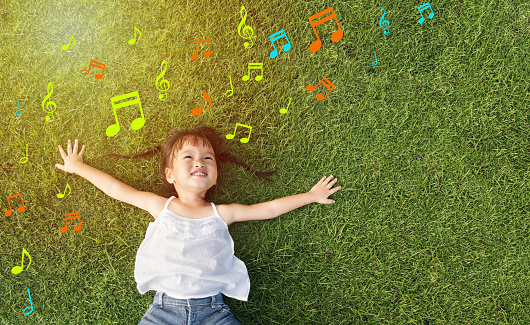Love of Music in Children
While raising their children, parents try to do everything best and aim for their children to be self-confident, successful and healthy individuals. One of the most effective ways to support the physical, spiritual and intellectual development of children and to prepare them for the future is through music education.
From an early age, children incorporate music into their lives, regardless of their abilities, by singing, dancing or playing a musical instrument on their own or in a group.
Since music, which has been used as an educational tool throughout history, has a very high importance in the development of the child, the love of music should be gained in the pre-school period, which is an important stage.
Provides Brain Development
Music has scientifically proven effects on health. According to research, music strengthens memory, provides cognitive development, improves the processing center of the brain and parts of the brain responsible for reading, writing, math and emotional development. It is thought that the brain functions of those who deal with music in their daily lives are different from others.
Helps Develop Social Skills
As children grow up, they may encounter difficulties in social adaptation. Activities such as going to a course to play a musical instrument or singing in a choir enable children to express themselves, establish bilateral relations and socialize.
Helps Gain Self-Confidence
Learning to play a musical instrument helps children build self-esteem and self-confidence. Children who realize that they have a talent and see that they develop it on their own have higher self-confidence.
Affects Psycho-Motor and Language Development
While singing provides respiratory control and lung development, musical instruments are effective in muscle development and psychomotor development. Learning to pronounce words correctly with songs and rhymes is seen as the effect of music on the language development of the child.
Increases Creativity
People who make music, write lyrics, compose and dance are also creative people. Children, whose creativity increases with music, become individuals who can see different points in other areas of their lives and produce alternative solutions in the face of problems.
Teaches Discipline and Patience
Patience and discipline are the two most important points for music. For example, consider those who sing in the choir, they are in regular harmony. This is because they wait for the signal from the choirmaster and are patient. In addition, in order to be able to play a musical instrument well, it is necessary to rehearse and repeat many times in a disciplined manner in order to learn the notes or to perform the dance figures completely.
Improves Listening Skill and Concentration
Especially since listening skills start to develop after the age of 3, the music education given from this age allows children to stay quiet and learn to listen. In addition, they learn to focus and concentrate on a single point through music.
